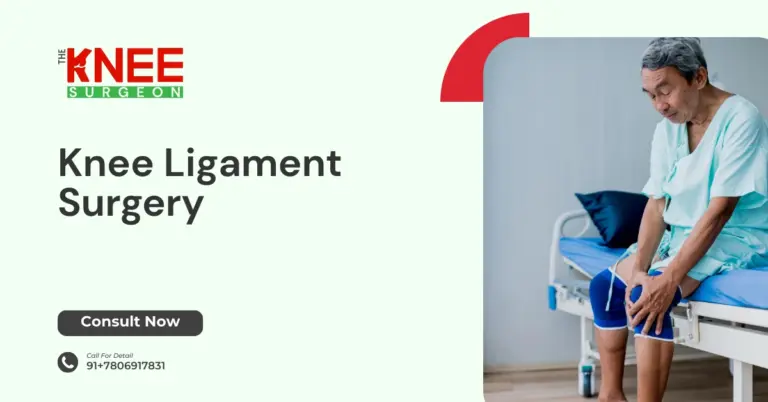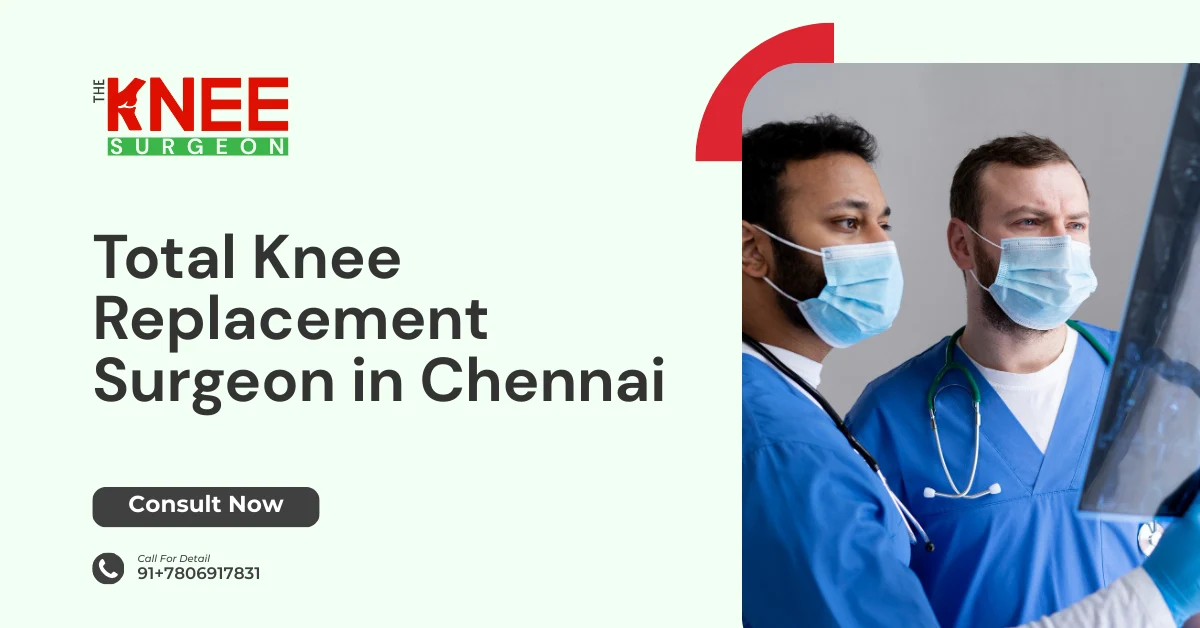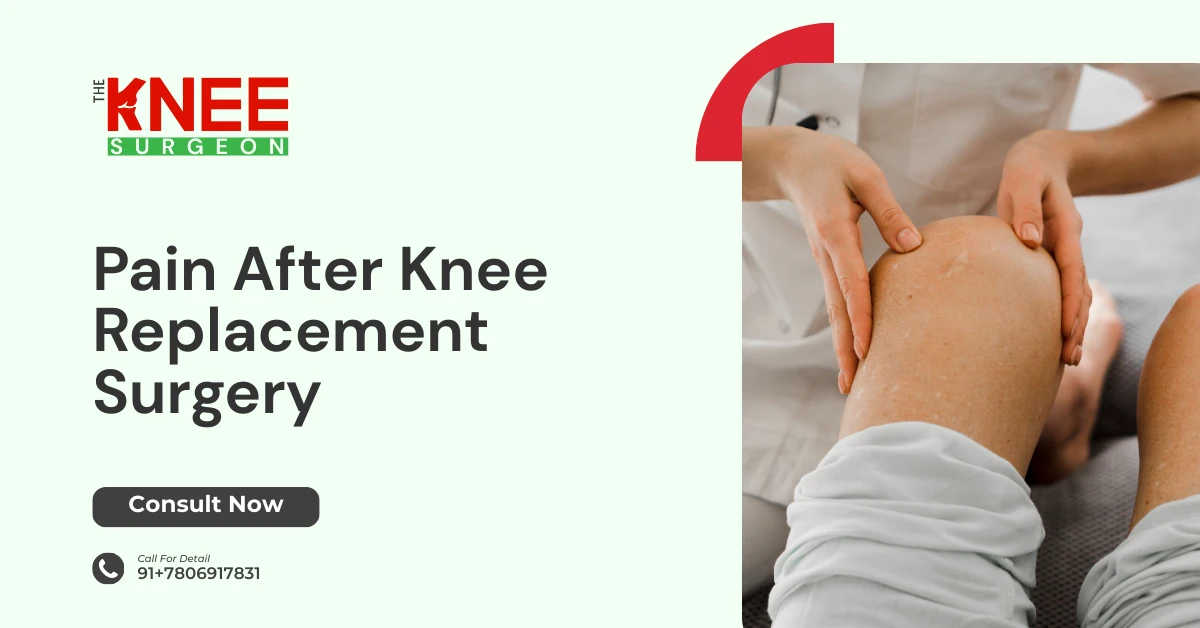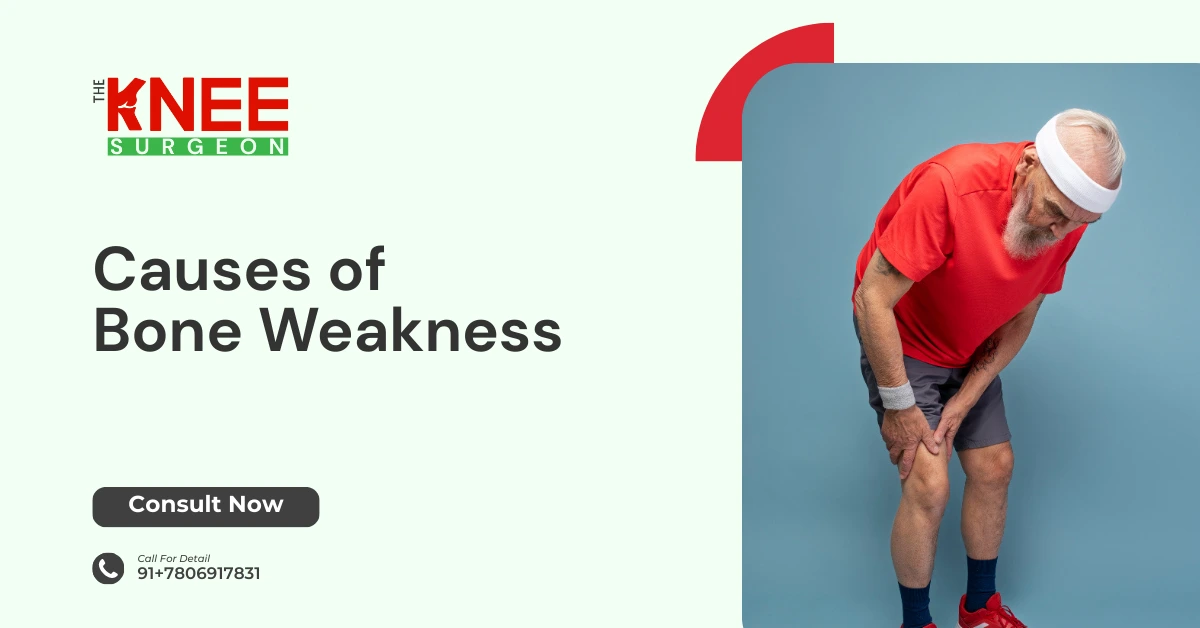Knee injuries can make everyday activities such as walking, climbing stairs, or bending difficult and painful. Knee Ligament Surgery is a specialized procedure designed to repair or reconstruct torn ligaments, restoring strength and stability to the knee joint. Commonly advised for athletes or those with significant ligament damage, this surgery helps patients regain mobility, confidence, and normal function. By correcting instability and preventing further injury, it promotes smooth, natural movement and supports a return to an active lifestyle.
Deciding to Have Knee Ligament Repair?
Knee injuries can significantly impact your daily life, making walking, climbing stairs, or even standing uncomfortable. If you’ve been diagnosed with a severe ligament injury, knee ligament surgery may be the best option to restore stability and mobility to your knee. Understanding the procedure, its benefits, and recovery process can help you make an informed decision.
Patients with severe ligament injuries, recurrent instability, or difficulty performing everyday movements are often ideal candidates. Those suffering from sports-related injuries or trauma may find knee ligament damage surgery essential for regaining full function. Consulting a skilled orthopedic surgeon ensures the right approach for your specific condition.
Expert Knee Ligament Surgeons in Chennai
Dr. Vijay Kumar Sohanlal is a leading orthopedic surgeon in Chennai with decades of experience in joint replacement and ligament repair surgeries. Known for his precision-driven approach and advanced surgical techniques, Dr. Sohanlal emphasizes pain-free recovery and patient-centered care. His expertise in both straightforward and complex knee cases, combined with compassionate care, makes him a trusted choice for knee ligament surgery.
Making an informed decision to consult Dr. Vijay Kumar Sohanlal ensures effective treatment, faster recovery, and long-term knee stability.
- Qualifications: MBBS, MS (Orthopaedics)
- Experience: 18 years
- Hospital: MGM Healthcare, Mahi Clinic, Kilpauk.
Understanding the Types of Knee Ligament Surgery
Knee injuries can range from minor sprains to severe tears, and understanding the type of treatment required is crucial. Knee ligament surgery is performed to repair or reconstruct damaged ligaments, helping restore stability, strength, and mobility to the knee. The type of surgery recommended depends on the ligament affected and the severity of the injury.
- Anterior Cruciate Ligament (ACL) Reconstruction
One of the most common procedures, ACL reconstruction, is often necessary after sports-related injuries. During this surgery, the torn ligament is replaced with a tissue graft to restore knee stability. Patients can expect a structured knee ligament surgery recovery time, usually spanning several months with dedicated physical therapy.
- Posterior Cruciate Ligament (PCL) Surgery
PCL injuries are less common but may occur from direct trauma to the knee. Knee ligament tear surgery for the PCL involves repairing or reconstructing the ligament to prevent instability and reduce the risk of long-term joint damage. Post-surgery rehabilitation focuses on strengthening the surrounding muscles to support the knee.
- Medial and Lateral Collateral Ligament Surgery
MCL and LCL injuries often occur alongside other ligament tears. Surgery is considered when conservative treatments fail. These procedures aim to repair or reconstruct the affected ligament, ensuring the knee can bear weight and perform normal movements safely.
- Combined Ligament Surgeries
In complex knee injuries, multiple ligaments may require repair simultaneously. Such surgeries are carefully planned to restore overall knee function and minimize future complications. Recovery may take longer, making adherence to a rehabilitation plan crucial for optimal outcomes.
By understanding the types of knee ligament surgery and the expected recovery timelines, patients can make informed decisions about their treatment options and work toward a safe, full recovery.
Why You May Require a Knee Ligament Repair or Reconstruction
Knee ligaments play a vital role in maintaining stability, balance, and smooth movement. When these ligaments are stretched or torn due to sports injuries, accidents, or sudden twists, it can cause pain, swelling, and joint instability. In such cases, knee ligament surgery, a key knee pain treatment, may be recommended to repair or reconstruct the damaged ligament and restore proper function to the knee.
- When Surgery Becomes Necessary: Minor sprains or partial tears may heal with rest and physiotherapy. However, severe ligament injuries—especially those causing the knee to “give way” during movement—often require knee ligament tear surgery. This procedure helps rebuild the ligament using grafts or other surgical techniques, ensuring the knee regains its strength and flexibility.
- Common Reasons for Knee Ligament Repair: You might need knee ligament surgery if you experience recurring instability, pain during physical activity, or difficulty performing daily movements. Athletes and active individuals are especially prone to ligament injuries due to high-impact movements. Early surgical intervention can prevent further joint damage and improve long-term mobility.
- Recovery and Rehabilitation: The knee ligament surgery recovery time varies depending on the type of ligament repaired and the patient’s overall health. Rehabilitation usually includes physical therapy to regain motion, build muscle strength, and restore balance. Following your surgeon’s recovery plan is key to achieving the best possible results.
Timely diagnosis and proper surgical care can help you regain confidence in every step and return to your regular activities safely.
Steps to Prepare for a Knee Ligament Repair or Reconstruction
Preparing for knee ligament surgery is an important step toward ensuring a smooth procedure and successful recovery. Proper preparation helps reduce complications, speed up healing, and improve overall outcomes. Here’s what you can expect before undergoing surgery.
- Preparing for Surgery: Before your procedure, your surgeon will provide detailed instructions on diet, lifestyle changes, and pre-surgery care. If you are undergoing knee ligament damage surgery, maintaining good overall health and following your doctor’s advice can make recovery easier. Avoid smoking and alcohol, and ensure your body is well-nourished for faster healing.
- Medical Evaluation: A complete medical assessment helps determine your readiness for surgery. Your orthopedic specialist will review your medical history, existing health conditions, and previous surgeries. If you are scheduled for knee ligament tear surgery, sharing details about any allergies or past reactions to anesthesia is important for your safety.
- Tests: You may need to undergo blood tests, X-rays, or MRI scans to evaluate the extent of ligament damage. These tests help your doctor plan the procedure precisely and anticipate any challenges during surgery.
- Medications: Inform your healthcare provider about any medications, supplements, or herbal products you’re taking. Some medicines, such as blood thinners or anti-inflammatory drugs, may need to be before surgery to prevent complications.
- Urinary Evaluations: For patients with urinary tract issues or prostate concerns, evaluations may be required prior to surgery. Addressing these problems in advance reduces the risk of post-surgical infections and ensures a smoother recovery process.
Conclusion
Recovering from a knee ligament injury is smoother with the guidance of an experienced specialist. Knee ligament surgery requires precision, expertise, and a thorough understanding of joint mechanics. Dr. Vijay Kumar Sohanlal, a renowned orthopedic surgeon, combines advanced surgical techniques with compassionate, patient-centered care. His expertise in ligament repair and reconstruction restores natural movement and long-term knee stability. With a proven track record in complex cases, he ensures optimal recovery, helping patients regain strength, confidence, and pain-free mobility.







